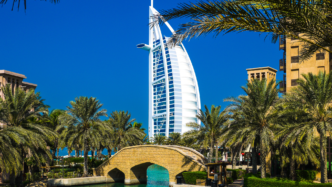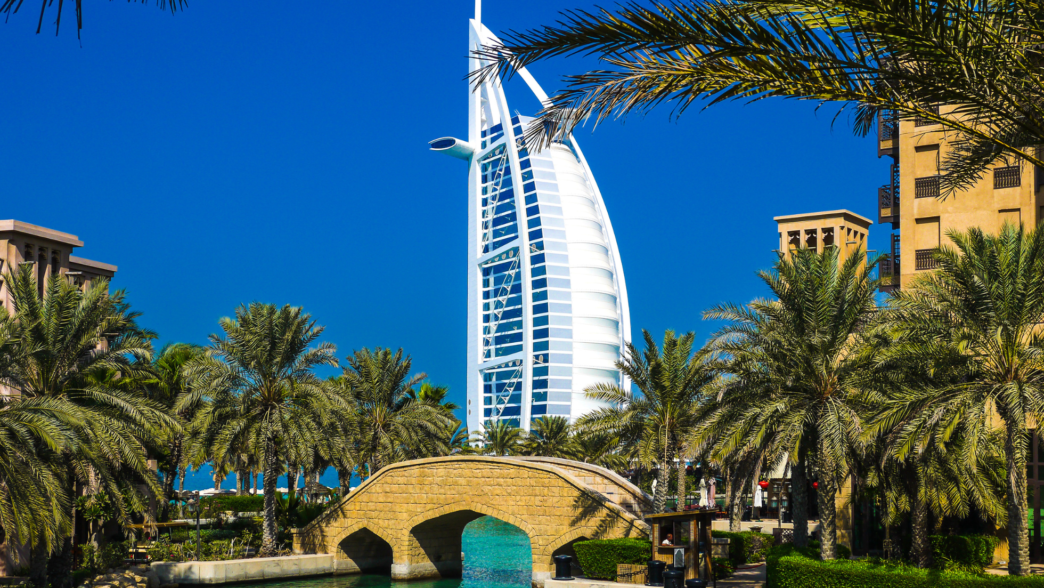Setting up a business in the UAE is an exciting step, with multiple options available across the country’s seven emirates. Among the most popular choices are Dubai, Abu Dhabi, and Ras Al Khaimah, each offering unique advantages for business owners. If you’re considering where to establish your business, understanding the nuances between emirates will help you make an informed choice.
-
Dubai: The Commercial Hub of the UAE
Dubai is known globally as a commercial and tourism hub, often regarded as the gateway to the Middle East. Businesses here benefit from a highly developed infrastructure, including state-of-the-art telecommunications, transportation, and logistics networks. Dubai also boasts access to one of the busiest airports in the world, making it a prime location for international business.
Benefits of Setting Up in Dubai:
Access to a global market: Dubai’s business ecosystem is internationally oriented, making it easier to connect with global clients and partners.
Strong logistics support: With its extensive transport network, Dubai offers swift, reliable movement of goods.
Variety of free zones: Dubai offers multiple free zones, such as the Dubai Airport Free Zone and Dubai Internet City, where companies can benefit from tax exemptions and other incentives.
However, business costs in Dubai, such as office rental and licensing fees, tend to be higher compared to other emirates. Dubai is ideal for those looking to establish a high-profile business with a global reach.
-
Abu Dhabi: A Growing Business Center
Abu Dhabi, the capital of the UAE, is a business-friendly emirate with a focus on sustainable development and economic diversification. Its government actively supports sectors like renewable energy, financial services, and tourism, making it an attractive option for companies in these fields.
Advantages of Abu Dhabi for Businesses:
Lower operational costs: Setting up in Abu Dhabi can be more affordable than Dubai, especially for industries in alignment with the government’s strategic focus areas.
Diverse market access: The emirate’s policies are designed to attract foreign direct investment, providing a range of incentives for specific industries.
Free zones: Abu Dhabi has established numerous free zones, such as the Abu Dhabi Global Market, an international financial center known for its favorable business regulations.
With a slower-paced business environment, Abu Dhabi may be better suited for companies in regulated sectors or those looking for a quieter but stable market in the UAE.
-
Ras Al Khaimah: The Cost-Effective Alternative
Ras Al Khaimah (RAK) is an increasingly popular option for entrepreneurs seeking a balance between costs and operational flexibility. RAK’s business environment is more cost-effective compared to Dubai and Abu Dhabi, while still offering solid infrastructure and access to essential amenities.
Why Consider Ras Al Khaimah for Business Setup?
Cost savings: RAK is one of the most affordable options in the UAE, with lower office rentals, utility costs, and licensing fees.
Flexible regulatory environment: RAK’s business laws are generally more adaptable, making it easier for smaller enterprises to navigate requirements.
Strategic location: While less commercialized, RAK offers proximity to Dubai, making it convenient for businesses targeting both local and international markets.
RAK’s free zones, such as RAK Economic Zone (RAKEZ), attract a range of businesses, from SMEs to large manufacturers. Entrepreneurs focused on cost efficiency and ease of operation may find RAK to be an ideal location.
-
Comparing Free Zones and Mainland Options
Across all emirates, businesses can opt for either mainland business setup or free zone incorporation. A mainland setup allows a business to operate anywhere in the UAE without geographical restrictions. In contrast, free zone companies are restricted to conducting business within the free zone or with entities outside the UAE unless additional approvals are obtained.
Mainland Business Setup is particularly advantageous for companies needing direct access to the local UAE market. This is often preferred by service-based industries, restaurants, and retail businesses. Mainland companies also have the freedom to expand branches within the UAE and do not face limitations on hiring UAE-based clients or working with government entities.
-
Other Emirates to Consider for Business Setup
Aside from Dubai, Abu Dhabi, and RAK, other emirates like Sharjah, Fujairah, Umm Al Quwain, and Ajman also provide unique advantages.
Sharjah: Known for its industrial areas and supportive policies for startups and manufacturing, Sharjah is a cost-effective location with easy access to Dubai and the northern emirates. The Sharjah Media City (Shams) free zone attracts media and digital-focused businesses.
Ajman: Popular among smaller businesses due to its low operational costs, Ajman offers the Ajman Free Zone, which is known for supporting SMEs and freelancers.
Fujairah and Umm Al Quwain: These emirates are ideal for businesses in specific sectors like maritime, logistics, and tourism. Their free zones provide various benefits, and lower setup costs make them a good choice for budget-conscious entrepreneurs.
-
Key Factors to Consider When Choosing an Emirate
Selecting an emirate depends on multiple factors, including your budget, business model, industry, and target market. Here are some key points to consider:
Operational Costs: Dubai and Abu Dhabi offer extensive networks and exposure, but their setup and operational costs can be high. RAK and the northern emirates provide more affordable alternatives.
Target Market: Businesses targeting international markets might prefer Dubai due to its global connectivity, while those focusing on local markets may find the benefits of a mainland setup attractive.
Industry Focus: Certain emirates provide targeted incentives for specific industries. For example, Abu Dhabi is favorable for financial services, while Sharjah’s free zones are well-suited for media and logistics businesses.
Infrastructure Needs: Free zones offer tax incentives and ease of setup, but they come with restrictions on local market access. Mainland businesses benefit from market flexibility but face certain regulatory requirements.
-
Conclusion: Making the Right Choice
Each emirate in the UAE offers a unique value proposition for businesses. Dubai remains a popular choice for companies seeking a dynamic business environment with strong global links. Meanwhile, Abu Dhabi’s growing influence and RAK’s cost-effective solutions provide excellent alternatives depending on your business model and budget.
Whether you’re setting up a high-profile international company in Dubai, establishing a niche industry firm in Abu Dhabi, or opting for a cost-efficient structure in RAK, the UAE has options to meet every need. Carefully assess the business incentives, costs, and operational requirements in each emirate to determine the best fit for your new venture in the UAE.







